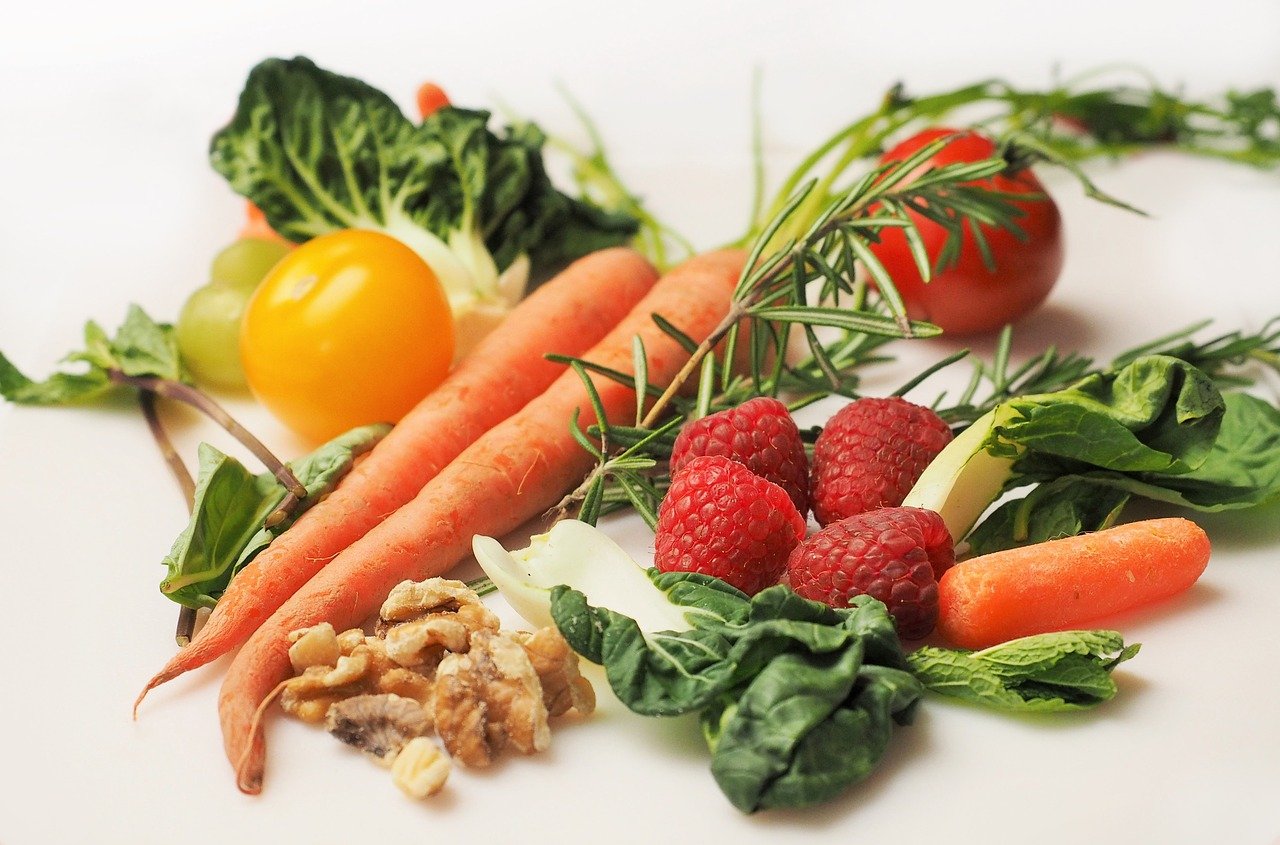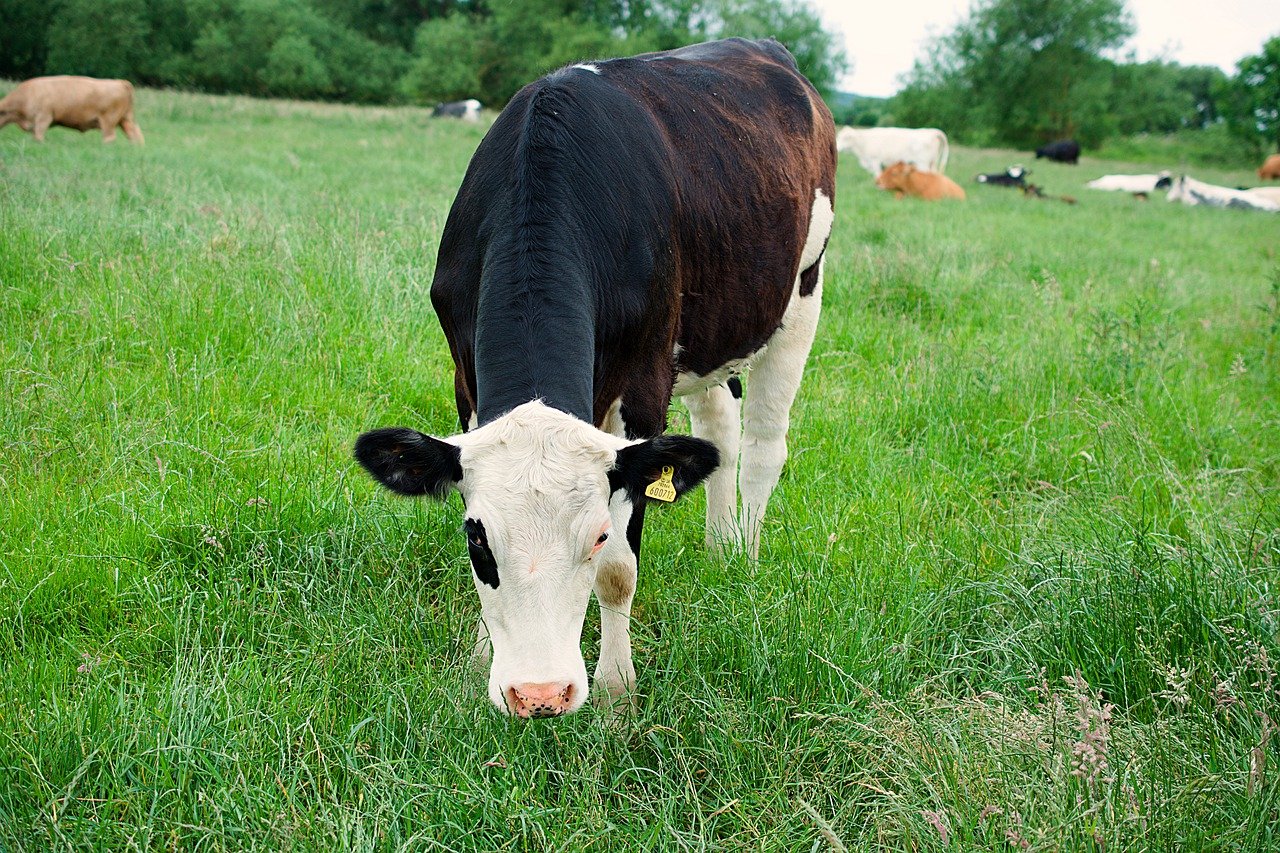Sodexo Announces Year-On-Year Increase in Popularity of Meat-Free Meals
Across the 2.7 million meals sold in Sodexo’s UK and Ireland client sites in 2023, 11 per cent were vegan or vegetarian, an increase of one per cent from...
Read Full Article
Starting a new year off the back of the pandemic's public health concerns and growing corporate social responsibility, the Veganuary Campaign is at its most popular. Why is that? How is this likely to affect FM in the workplace, and the way we cater to carbon conscious staff or customers moving forwards?
As Veganuary 2021 gets underway, this year’s cohort is already the biggest since the pledge began in 2014. It was announced that 500,000 people did sign up for the 31 day Veganuary challenge in 2021 and of those people there were 125,000 from the UK.
"Behind Veganuary there’s a bigger picture – one which induces long-term action."
– Marco Settembri
CEO of Nestlé in Europe, the Middle East and North Africa
In 2020, the pandemic refocused professional and personal lives. We are of course still experiencing operation restricting measures that were drafted and enforced to keep the vulnerable safe – consequently many are seeing the health of themselves and the planet in a new light. Plant-based diets have been linked to lowering the risk of multiple health complications such as heart disease, type two diabetes, cataracts, arthritis, osteoporosis, breast, prostate and colon cancer. Whilst the benefits of animal products in our diets is heavily debated, moving towards more plant-based meals with supplemented B12 – that livestock are also supplemented with – has been shown through multiple studies to be higher in some nutrients and facilitate weight loss in well-balanced examples.
Much of the office has switched to a working from home model. It’s no surprise that – although it has also been suggested there has been an increase of travel pollution from personal vehicles – less commuting, less leisure facility use and sustained furlough off-work time has given people the opportunity to take a step back, consider and research. Those that did may have stumbled upon a few key facts with linked sources on the popular Cowspiracy website:
"We ought to look at ourselves rather than just our projects."
– John Long
Director, Igloo Regeneration
This is becoming more obviously a focus for carbon reduction targets as companies and governments worldwide attempt to tackle the climate crisis. Due to the pandemic, in a survey by edie of 101 UK-based energy and sustainability professionals conducted in late March 2020, 70 per cent said their organisation had either confirmed plans to pause investment into sustainability solutions or were considering doing so.
However, the detour from business as usual has also provided little excuse to restart in an unsustainable way after losing momentum. The UK’s lockdown has already seen a large improvement in outdoor air quality, with measurements of toxic particulate matter reducing temporarily in many major cities during summer. The nationwide shutdown is being credited, by some, as an example of how low-carbon ambitions can be achieved. However, due to increased use of gas heating in homes, there has also been an decrease in indoor air quality over winter, and these emissions have actually driven the same toxic particulate measurements to higher than average.
Clearly it is a multifaceted issue with conflicting studies – many findings are yet to be collated in 2021 to fully understand the impact of 2020's societal operation changes on the environment. Can businesses afford to take new pledges for their sustainability seriously after the economic hit, or can businesses afford to take the economic hit if they aren’t seen to make pledges for their sustainability? Switching to vegan options for food and furnishings could be an alternative way for businesses to practice effective corporate social responsibility (CSR), for the meantime and to continue moving forwards.
Property developers Igloo Regeneration recently announced that they would not reimburse expenses when their employees chose meat, as an attempt to affect their own carbon footprint as a company. "We spend a lot of time thinking about the impact of our property development on the planet," said Igloo Director, Jonh Long. "We invest a lot of time thinking about sustainability and we've been thinking about carbon for 20 years. About six months ago, we thought we ought to look at ourselves rather than just our projects."
“Pandemics almost always begin with the transmission of an animal microbe to a human,” writes biologist Nathan Wolfe in the introduction to his book The Viral Storm: The Dawn of a New Pandemic Age. It examines how viruses like HIV, swine flu, and bird flu have almost wiped us out in the past, and may do so in the future. COVID-19 has been linked to wild animal consumption, however, the risks in livestock consumption have also posed a concern. A prominent report by ProVeg International suggested that factory farming is the leading risk of pandemics. In addition to the danger of contaminated produce, antibiotic resistance in humans has been linked to high use of the medicine on animal farms, where they are used to stop the spread of many diseases.
There is little to no evidence to suggest that COVID-19 can spread through livestock, however like other industries, the supply chain has been heavily affected by lockdowns and viral outbreaks in workers at facilities. In the US, this resulted in a 45 per cent reduction in pig processing at a point, meaning many farms were faced with the reality of taking the slaughter into their own hands and the biohazard of carcass disposal. Consequently, much of the meat is then wasted due to its short period of safety for consumption, unless processed quickly.

Picture: a grazing cow.
Due to the shifts in the tier systems and short periods of notice for the lockdowns, many in the food industries have been left with large amounts of wasted produce that won’t keep. As pressure mounts from staff, activists and the public to reduce food waste, statistics like the last two in the bullet points above show that gradual transition to a less animal-agriculture based society could also improve malnutrition issues worldwide. As crops are cheaper to farm than animals for the majority, that is important to consider in conjunction with improving the distribution of unsold goods, because regulations for food safety mean there will still be wastage at the final stage.
WRAP UK found that COVID-19 has had an impact on the transparency of wastage reporting, with many companies opting not to release information publicly as they attempt to navigate distribution struggles. However, in Italy a university study found that consumers were developing a new level of awareness about food waste, with potential positive impacts on the environment in terms of reducing greenhouse gas emissions and groundwater pollution.
In the last few years, the catering industry has been developing on an inclusion basis to capitalise on the growing interest in plant-based alternatives – the demand has driven the research and development into more convincing meat substitutes and diversifying of menus. The expectation of food services to offer this has grown to the point where there are very few private sector providers, other than the very specifically meat orientated, that do not offer vegan options.
In the public sector, the progress has been slower. At present in the UK, main hospital ward menus do not offer a specific vegan option, although some vegetarian options which can be made suitable for vegans are marked as such. NHS trusts do have onboarding mechanisms in place which capture patients with specific dietary requirements, including vegans, on admission to hospital. Once notified, the UK government stated that the kitchens can provide suitable plant-based substitutes to meet nutritional requirements, in most circumstances.
Companies with contracts in the public sector therefore have pioneering opportunities ahead. Looking at Portugal, a bill was passed in government after a successful petition of the last decade to offer better institutional vegan options. As the UK is the leading country in practicing Veganism, it is forward-thinking to prepare for the inevitable changes in legislation down the line. Last year Sodexo sites across many sectors and industries in the UK and Ireland, including schools, government offices, hospitals and corporate sites, boosted their daily offers with additional plant-based dishes that were available throughout January and beyond.
The Vegan food market was said to be worth £572m in 2020, and was estimated to top £658m by 2021. Deliveroo have already announced a massive increase in demand this month as vegan takeaway orders skyrocket 163 per cent for Veganuary. Many companies have tried to capitalise on this interest by releasing new products, including Subway's non-GMA plant-based chicken substitute.

Picture: a vegan curry.
"2020 brought much hardship and heartbreak, but it also gave us an opportunity to change and build a better future."
– Toni Vernelli
International Head of Communications, Veganuary
Household names such as Jane Goodall, Ricky Gervais, Paul McCartney, John Bishop, Sara Pascoe, Chris Packham, Chrissie Hynde and over 100 additional international superstars, politicians, NGOs and businesses who signed a joint letter published last week calling on everyone to help fight climate chaos and prevent future pandemics by changing their diet.
Toni Vernelli, Veganuary’s International Head of Communications, says: "2020 brought much hardship and heartbreak, but it also gave us an opportunity to change and build a better future." She added "Veganuary offers people a way to take positive action to protect our health and our planet, as well as help prevent future pandemics. The huge response we’ve had this year shows it’s exactly what many people need right now."
Leading accountancy firms PwC and EY, as well as media giant Bloomberg, are taking part in #VeganuaryWorkplaceChallenge and encouraging everyone in their teams to try vegan this January. They’re joined by Nestle, M&S and Quorn, whose senior leadership are also taking part, and many more future-proofing businesses. The PDF released by Veganuary provides some interesting facts about making the switch for personal and environmental reasons, as well as suggesting some simple meal ideas to get people started.
“As someone who stepped up to the Veganuary challenge this year, I am happy to be part of this movement as it grows across Europe and beyond," said Marco Settembri, CEO of Nestlé Zone in Europe, the Middle East and North Africa. "For me, now, behind Veganuary there’s a bigger picture – and one which induces long-term action. It’s about really feeling the need of the consumer.
"That is why, this year I am promoting Veganuary across many of our categories and initiatives. Afterall, a well-planned plant-based diet can meet the nutritional needs during all stages of life. And there are the environmental and health benefits too. This year I am passing the baton and encouraging all employees to participate in Veganuary and sign-up to the challenge. We will inspire them with delicious recipes from our Garden Gourmet colleagues, vegan options in the restaurant, tips from experts, and dietary advice.”
"As part of our overall sustainability strategy, Bloomberg is dedicated to reducing its food-related emissions," said Emily Barbey, Head of Hospitality, Pantry and Office Services for AMER of Bloomberg LP. "We're excited to offer our employees a growing selection of delicious plant-based food options in our offices. At the same time, we're looking to raise awareness of the health and environmental benefits of a plant-based diet that our employees can integrate into their day-to-day, whether at home or in the office."
Picture: some vegetables, fruits and nuts.
Article written by Bailey Sparkes | Published 08 January 2021
Across the 2.7 million meals sold in Sodexo’s UK and Ireland client sites in 2023, 11 per cent were vegan or vegetarian, an increase of one per cent from...
Read Full ArticleTo mark Veganuary 2023, Sodexo has published its food sales data showing a year-on-year increase in the proportion of vegetarian and vegan meals sold across 476 of its UK...
Read Full ArticleA total of two million people have officially signed up to Veganuary - the global pledge to try vegan for 31 days - since the pledge began in 2014. More than 75...
Read Full ArticleThe Department for Business, Energy & Industrial strategy recently published a Net Zero principles report that recommended plant-based diets, however this was deleted...
Read Full ArticleAs many people turn to healthy eating regimes in the New Year to offset festive indulgences, Sodexo, is giving customers a helping hand by encouraging the uptake of...
Read Full ArticleJust Eat for Business has collated its order data to reveal the most popular office lunch trends for the first six months of 2024. Communal...
Read Full ArticleA national campaign will see more than 85 of the UK’s top football clubs promote plant-based burgers, pies and hotdogs. Between 2-5 February, the whole of the...
Read Full ArticleThe Defence, Marine & Aerospace sector of ESS, part of Compass Group, is partnering with the MOD Vegan & Vegetarian Network with the joint objective of ensuring...
Read Full ArticleResearch from Compass Group shows that younger generations of workers across the UK are demanding workplace change more than any other demographic, and are willing...
Read Full ArticleContract caterer Eurest has partnered with the University of Oxford to examine whether workers can be influenced to buy sustainably based on the food choices of their...
Read Full Article